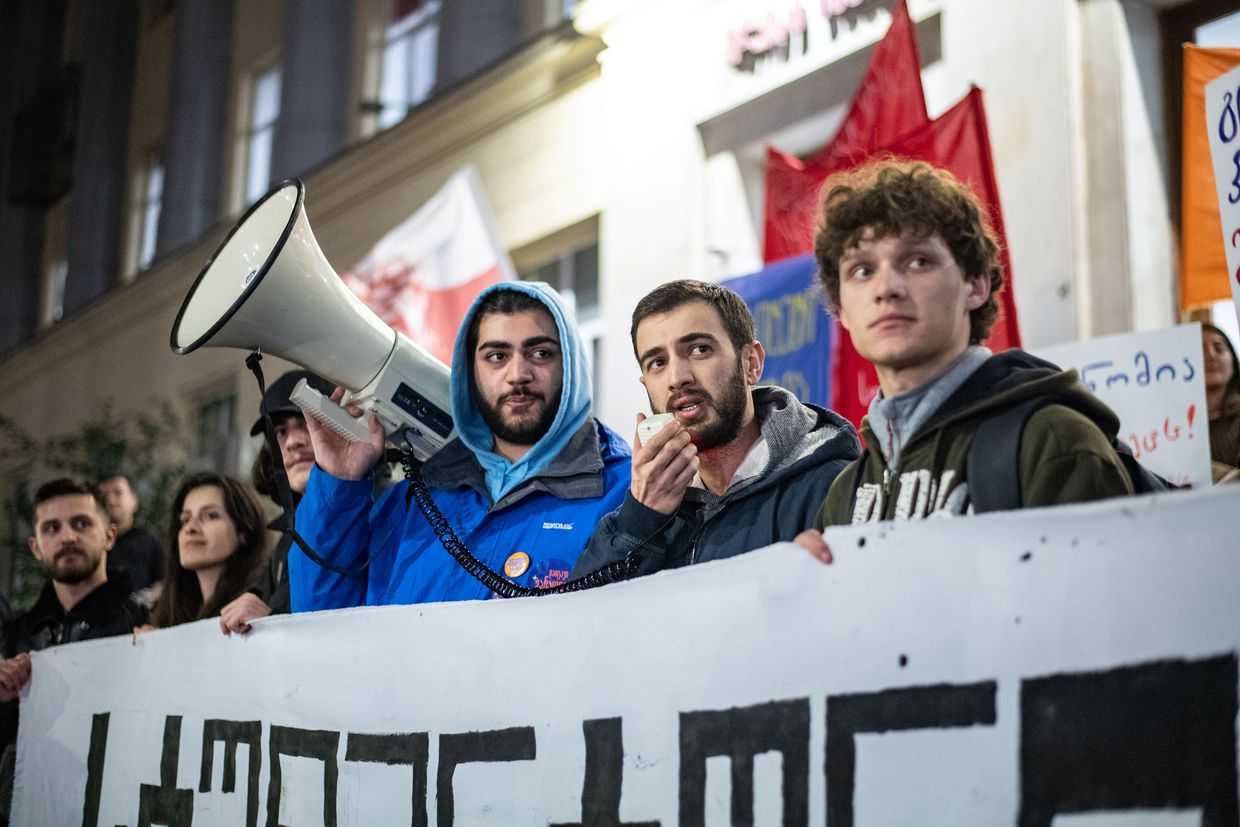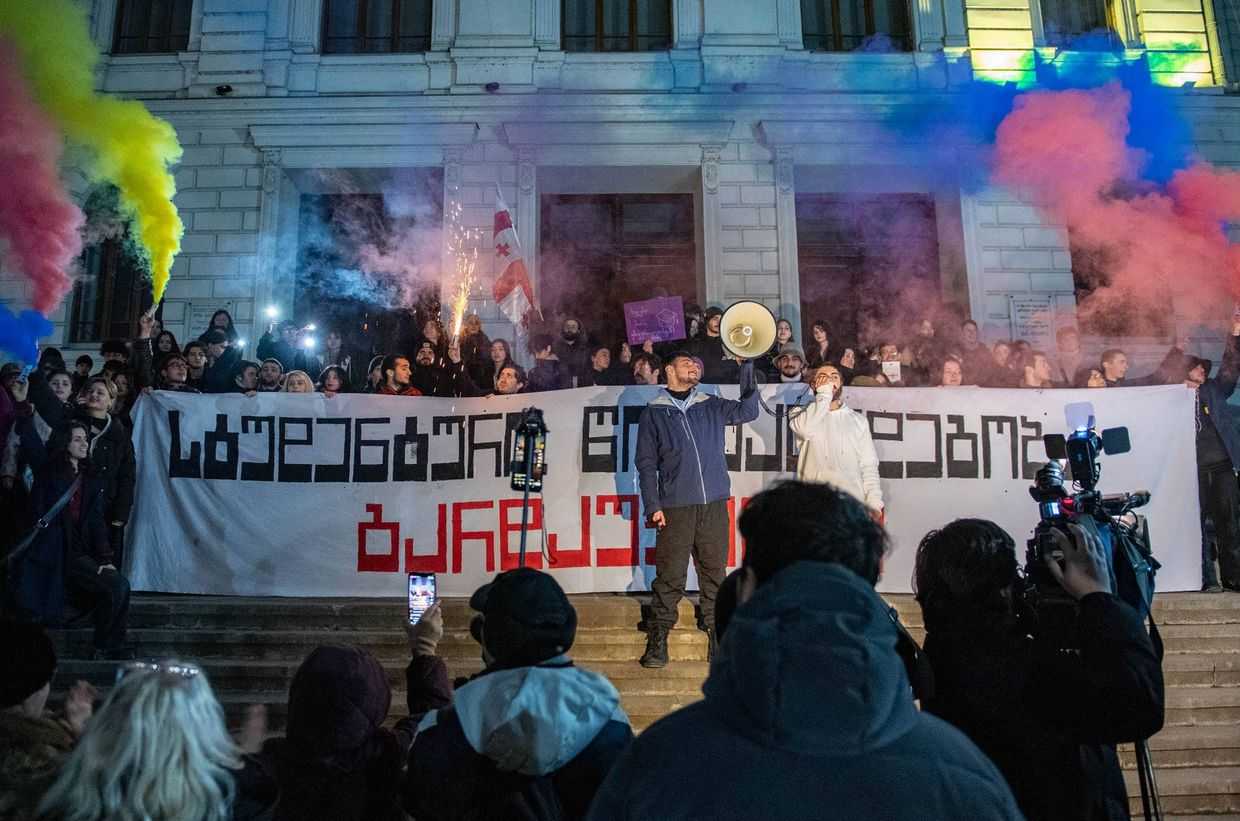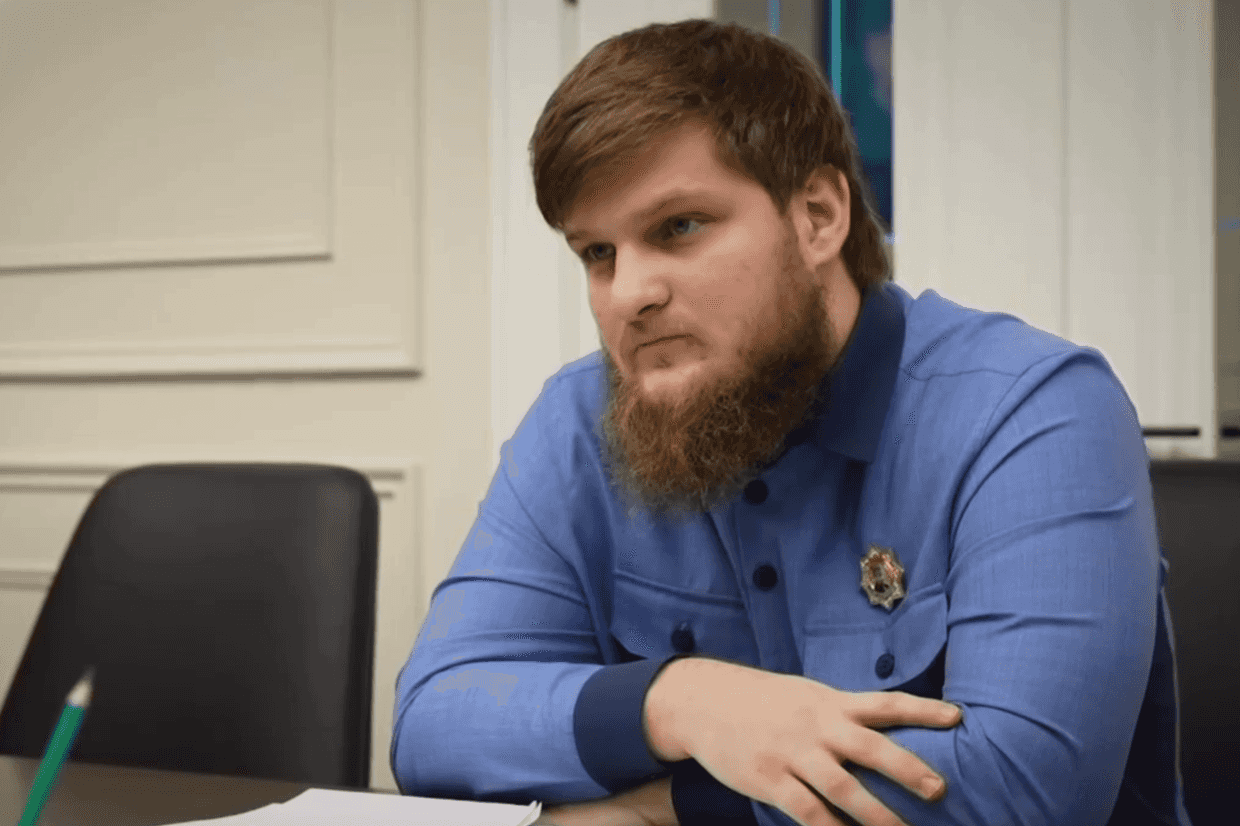
Georgia’s Ministry of Education has withheld full accreditation from Ilia State University (ISU), with critics attributing the move to the university’s staff and students’ opposition to the controversial foreign agent law.
On Friday, Ilia State University reported that the Authorisation Council for Higher Education Institutions had granted them authorisation ‘with the condition of monitoring after a year’.
According to the university, this decision was made despite having received positive evaluations from experts in June. The university pledged to appeal the decision once the Council provides an official explanation, which they are required to do within 10 working days.
ISU is the second-largest state university in Georgia.
The Authorisation Council for Higher Education Institutions operates under the National Centre for Educational Quality Enhancement, a subagency of the Ministry of Education. It is responsible for monitoring institutions’ compliance with the educational standards and oversees their authorisation and accreditation processes.
Prominent Georgian education expert and former ISU professor Simon Janashia first broke the news in a Facebook video on Thursday. According to him, when asked to explain the decision to grant ISU only conditional accreditation, the interim head of the authorisation council, Zurab Orjonikidze, stepped out of the meeting, allegedly to take a phone call. What Janashia seemed to be referring to was a suspicion that Orjonikidze may have received instructions from ‘somebody outside’, likely suggesting that he was receiving instructions from a higher authority.
Janashaia claimed that upon his return, Orjonikidze stated that the council was under no obligation to explain their decision.
The National Centre for Educational Quality Enhancement declined to comment on any aspects related to the decision, advising that clarification would be provided by the end of next week.
Speaking out against the foreign agent law
According to Janashia, who last month joined the opposition Coalition for Change alliance, the decision was political retribution for the criticism voiced by the university’s staff and students against the government. ISU has been seen by its critics, including many supporters of the Georgian Dream government, as a stronghold of liberal thought since its formation in 2006 through the merger of several educational institutions.
In particular, ISU has been vocal in their opposition to the foreign agent law, which inspired widespread protests when it was reintroduced in April 2024. Critics of the law dubbed it the ‘Russian law’, due to its similarity to legislation used by the Kremlin to crush dissent and civil society in Russia.
[Read more: Georgian government launches onerous and invasive registration for ‘foreign agent’ NGOs and media]
The reintroduction of the legislation this year, and its eventual success in parliament, sparked another wave of street protests, predominantly led by students. A group of students drew attention for vowing to go on strike and skip their lectures across a number of key universities in Georgia.
On 11 May, at the height of the street demonstrations, a group of ISU academics pledged that the University would stay ‘on the right side of victory’ and join the strike if it occurred.
The Council of Rectors, a government-led platform for leaders of higher education institutions, swiftly responded by issuing a collective letter distancing themselves from ‘politics’. However, ISU’s rector, Nino Doborjginidze, notably refused to endorse this stance.
Doborjginidze had been outspoken against the foreign agent law since it was first proposed in early 2023. On 7 March of that year, she warned that the law could result in the international isolation of Georgia’s education system.
Three months later, the government-leaning TV channel Rustavi 2 accused Doborjginidze of nepotism and misspending, while also revisiting a fatal car accident she was involved in back in 2010. Doborjginidze described these accusations as an attempt to ‘psychologically destroy’ her.
The anti-foreign agent law protests over the past two years have raised questions about the political neutrality of Georgia’s various state institutions, including the Ministry of Education.
On 15 May, amidst the street protests against the foreign agent law and attempted nationwide student strike, the Centre warned higher educational institutions that it was their duty to ‘ensure the smooth running of the academic process so that accreditation and authorisation standards are not violated’. The statement triggered a protest of around 90 of the centre’s employees.
Janashia cited this statement in his 27 September video, claiming that ‘in essence, the Ministry is now following through on that threat’.
‘Making such a decision in this manner shows that Georgian Dream is trying to terrorise not only every member of society but also to seize control of […] the institutions that remain independent. This affects not just Ilia University as one organisation, but the entire higher education sector’, Janashia warned.








